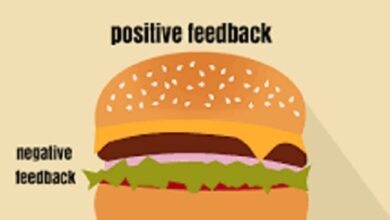How to stop apologizing for everything Why do we apologize
Does this sound familiar to you?: You go down the street, a person pushes you and you apologize. You apologize every time you have to ask for a favor, or ask for information to do your job. Here we will let you know How to stop apologizing for everything?
Apologizing when we have really done something wrong is a virtue, however, there are people who have an almost reflex reaction to apologize, even when what has happened is not their fault.
Why do we apologize so much?
This reaction is usually learned in childhood, and is more frequent in women. Often they transmit values to us of being educated, first and foremost. They socialize us that being kind translates into being more accepted. And although this is not negative in itself, apologizing excessively ends up hurting us.
Studies like this have seen that asking for forgiveness does favor forgiveness behaviors from others, but not feelings of forgiveness. It is good to keep in mind that asking for forgiveness and the other saying that he forgives you does not necessarily imply that he really feels that he has forgiven you.
Asking for forgiveness for everything usually has its origin in avoiding conflict, and in the need to be accepted and liked. It is also a way of directing responsibility for what happens around us, whether or not it was our fault.
At what cost?
We may have an unconscious belief that our rights, wants, and needs are less important than those of others. That we really don’t have the right to ask for what we ask for or to do what we do.
Therefore, it negatively affects our self-esteem. This attitude can convey the idea (to us and to others) that we practically apologize for existing, ceasing to claim a space that also belongs to us and to defend our rights.
It is also a way of relying on external validation, since when we ask for forgiveness we are waiting for the other person to say: “Oh, don’t worry, it’s okay”.
How to stop apologizing all the time?
- Reflect on the origin of this attitude: You can ask yourself the following questions to find out how this behavior could be established in your childhood:
- What was your first reaction when someone said “no” to you?
- What was the reaction of your environment when you set limits or defended yourself?
- Were the different opinions accepted?
- What other experiences have been able to influence how you relate to authority and how you set limits, especially at work?
- Examine the situations in which your urge to apologize comes out: Observe in which contexts you are most likely to apologize unnecessarily. Places, with what people, moods (of yourself and others), other people’s attitudes… It is possible that it is more frequent at work, with people with whom you do not have much confidence, with very authoritarian and demanding people, or when you have a need to please.
- Know your assertive rights: Know the rights you have as a person, to be able to start defending them. You have the right to change your mind, to say no, to make mistakes, not to take responsibility for the problems of others… The more present you have them, the less it will cost you to stop apologizing for exercising those rights.
- Slow down your impulse: This part is the most difficult and needs practice. It’s common for you not to be able to stop your impulse at first, but it’s a big step to start with just being aware that you’re apologizing unnecessarily. Nothing happens, you can rectify later. For example, if you are going to cancel a plan with friends, and you are going to say sorry, or you have already said it, you can say next: “Actually, I wanted to say that thanks for understanding, I’m exhausted from all the work I’m having and I need to rest. I really appreciate you being flexible.” Instead of saying, “Sorry to rant,” you can say, “Thank you for listening.” Replacing “sorry” with “thank you” is effective in many situations.




